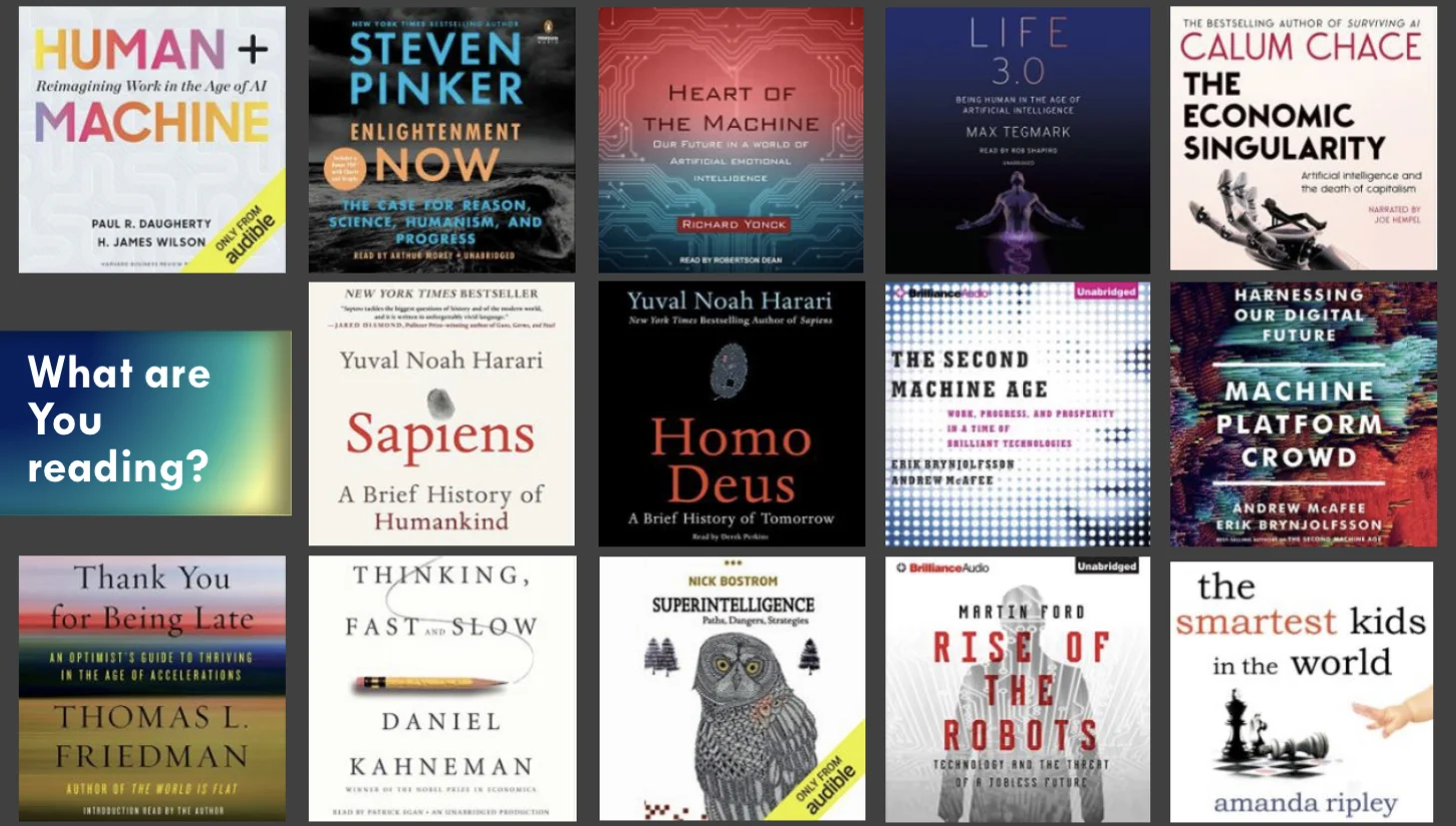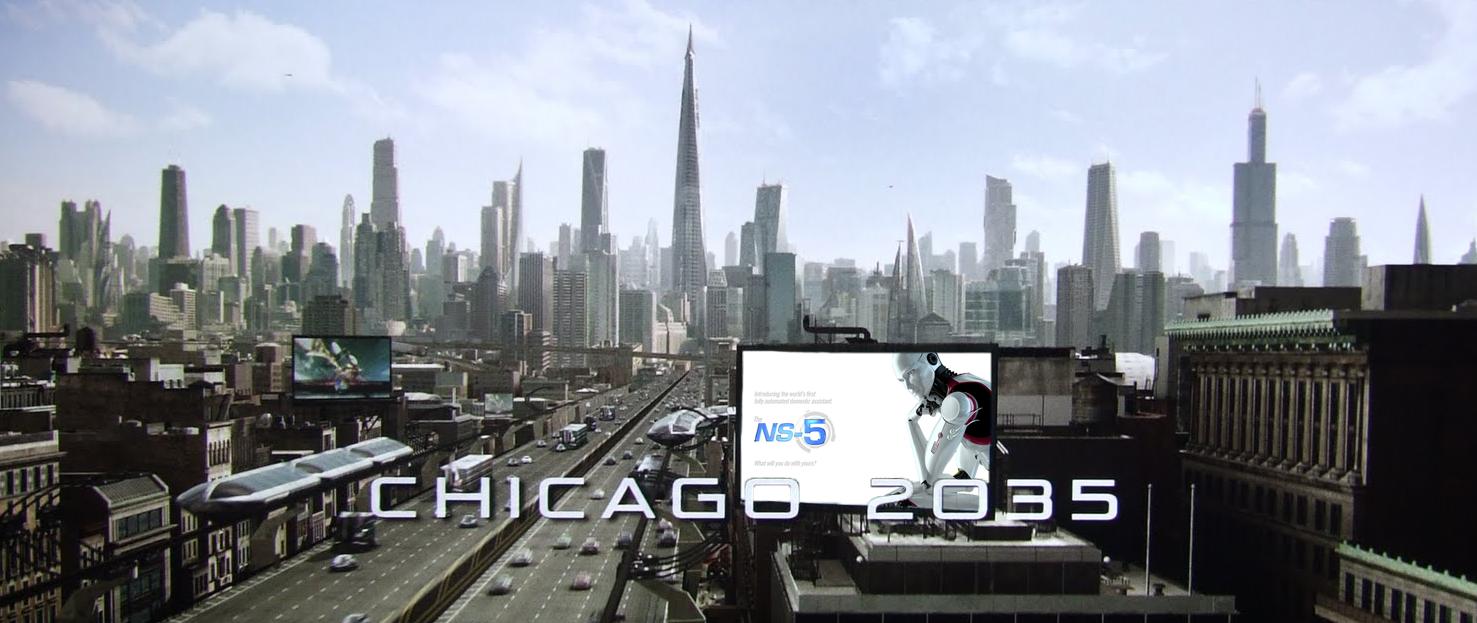Recruitment has adopted HR, Marketing, and Operations techniques. As work loads decrease, and companies struggle for revenue, where can TA deliver ROI ASAP?
If you’re wondering what the 2020’s will be like, and searching for ways to future-proof your career, read further…
Machines and humans will need open learning structures that adapt to the learner and subject to keep up with the pace of technological innovation in the 2020's.
Check out these amazing stories about AI and learning agility!
One of the biggest bottlenecks in recruitment is interview scheduling. Whether it is the initial phone interview, meeting a hiring manager, or planning panel interviews, the nightmare of conflicting calendars and tight time frames is real. Quit playing cat and mouse with your candidates and try one of these four systems for scheduling automation.
The time has come to shift our focus from easy to cheat, non-scientific tests, to data-based, neurological assessments that eliminate biases and push the best candidates to the top (rather than screening out those that don’t fit). Let’s look at several solutions that take this approach.
Static templates and boilerplate interview questions often diminish the candidate experience. They’re not personalized, dynamic, and they certainly don’t empower candidates to envision themselves as the hero of your company. However, a few brave recruitment pioneers are piloting solutions that are dynamic, personalized, and engage candidates at first touch. They are chatbot innovators!
Are you intimidated by all this talk of digital transformation and artificial intelligence implementation? Do you feel like you don’t have the tech-savvy or coding knowledge to get started? In the world of recruiting, we’re often faced with too many requests and not enough time, because business moves at the speed of life. I’m here to tell you, thankfully, that you don’t need to know how to code to source candidates with A.I.
Are we on track for super-intelligence by 2027? 2 years in, and the surprising answer is…
Our current educational system is cracking at the foundations. The standard model of sitting in a classroom for 7 hours a day, 9 months a year, for 13-19 years is slowly becoming less-relevant in the face of technological progress.
A recent study by Oxford University found that up to 47% of today's jobs will disappear in 25 years, thanks to increased computer efficiency and the advance of artificial intelligence capabilities.
Q: So how can an educational system designed to train you for a job that no longer exists be sustainable?
A: It isn't. But there are new options...
The "plug-ins" necessary to reboot our antiquated educational system are developing quickly and people are using them to future-proof their careers in 3 unique ways:
1) Getting started without many resources? Options are popping up!
Life isn't an RPG, and not everyone starts from the exact same fair origin point. If you didn't start life with a full-ride at your finger tips, there are rising institutions answering the call of those in need. To jump the skills gap, train, educate, and prepare workers for the jobs of tomorrow, companies like Year Up, College for Social Innovation, Operation Hope, AmeriCorps, and Service Year Alliance have sprung up with the necessary resources to get workers back on their feet. Taking advantage of these resources may be your first step for re-tooling your technical skillsets and landing a job that will take your career to a new level of opportunity.
2) Established career? Time to level up!
So you managed to make it through your undergraduate degree, great! But after college it was exceedingly difficult to find a job as a Latin Theater Studies major, so you settled for a job at local retailer, and worked up to middle management. But it wasn't all it was cracked up to be. Now is the perfect time for your to join a MOOC (Massive Open Online Course) in an area of burgeoning growth, Machine Learning. Cognitive Class.AI, EdX, Coursera, Future Learn, iversity, Udemy, and Udacity are some of the top rated MOOC's that you can join today to get started on building a new career that will evolve with technology rather than being replaced by it. Once you complete a course, add it to your resume!
3) Already got skills? Get ready to work with machines & people!
In my previous posts on Ideation, Large-Scale Pattern Recognition, and Complex Communication, I outlined the top 3 skills necessary to keep pace in the evolving labor market. If there was one more I could add it would be Social Skills.
“Overall, social skills—such as persuasion, emotional intelligence and teaching others—will be in higher demand across industries than narrow technical skills, such as programming or equipment operation and control.”
Becoming familiar with programing software, hardware, data analytics, or managing these areas should be a primary goal for your next career move. It will help you land a sustainable job in a growing industry. However, without the proper leadership, teamwork, and collaborative skills necessary to nurture relationships, you may miss out on the one core factor necessary for the future of work; the human element.
No one can be certain where the future will take us, but it is veering down a technological tunnel of wild turns and unpredictable outcomes that may disrupt the very fabric of our society. How to prepare for these challenges is a choice we all have to make.
I may not be able to predict the future, but I do know this: The longer you wait, the harder it is to change.
Want to learn about how machine learning is evolving to impact the future of your career? Find more at zacengler.com
Links to posts in this series & more:
1) Ideation
2) Large Frame Pattern Recognition
4) Future-proofing Your Career
5) A.I. Stepping Into Life Series
Follow me on Twitter: @zacengler
Are you ready to fight a robot for your job? If you are an excellent communicator of complex ideas, it may be a more fair fight for you... at least for now.
Entrepreneurs, ladder climbers, and those looking to future proof careers gather round. The Gig Economy continues ahead at break-neck speed and machine learning is growing at exponential rates. Do you have the skills to beat a machine in your next business endeavor, career move, or job?
Japan is home to Fukoku Mutual Life Insurance, a company that will be replacing 34 human workers with IBM's Watson Explorer. This version of Watson (an artificial intelligence system) is designed to support the insurance claims process at the firm (according to a recent Quartz article).
Thanks to the 34 terminations, the move to Watson Explorer will save the company an estimated $1.1 million per year. Great for Fukoku, bad for the 34 people out of work. Now, most people mights say "Hey, layoffs happen. You'll find a better job elsewhere." Normally I would share this advice too, however this time the situation is a bit more dire.
Typically when layoffs happen, you start your job search and in a few weeks/months you find a new gig. HOWEVER, what happens when all insurance firms use an A.I. to do your job? Guess what, your services are obsolete, and you need not apply... EVER!
Before you run to the nearest unemployment office though, take a second to finish this article. By analyzing you current skills, I believe you will be able to quickly adapt to your current situation, acquire new skills, and be placed in an even better position for work now and the future. How you might say? It starts with these four skills:
- Ideation
- Large Frame Pattern Recognition
- Complex Communication
- Future-proofing Your Career
In the coming weeks I'll highlight each skill, why it's important, and how it'll be applied to the search for your next job. It won't be easy, it may not be fun, but the longer you wait, the more people will get ahead of you in the race with machines.
Lastly, to shine a little bit of hope on a somewhat dark situation, I'd like to share the following video. We can either continue down the same path of "false scarcity" history has led us down thus far, or truly change our world to embrace the abundance that technology can bring to our front door (in a brown box of course).
In my next post I'll tackle ideation, and how it too will be a crucial skill for the coming decade of machines learning. (click here to read the post)
Want to learn about how machine learning is evolving to impact the future of your career? Find more at zacengler.com
Links to posts in this series & more:
1) Ideation
2) Large Frame Pattern Recognition
4) Future-proofing Your Career
5) A.I. Stepping Into Life Series
Follow Zac on Twitter: @zacengler
What is Artificial Super Intelligence? What steps can you take to start future-proofing your career?
What are the moral implications of A.I. emotion, and how will it impact the careers of our children?
How will quantum computing could play a role in our evolving relationship with artificial intelligence and personal development?
Could dramatic changes in human/machine interaction develop to be more intuitive and possibly have boom/bust consequences for our economy?
Could exponential technologies coupled with slipping education standards create a labor-income gap? If they are, what can we do about it?
So, when will your job be replaced by artificial intelligence (A.I.), computers, or robotics? For some it might be a while, for others the answer may be a lot sooner than you think. Ready to find out why?
There have been numerous studies on the "Singularity" of computing power, and this year the discussion will likely grow louder as we start to see early examples of it beginning. This post is an intro to the exponential growth of computing power, Human VS Computer capability (so far), and how things can get weird very quickly.
This post is also Part 1 of my A.I. Stepping Into Life Series, where I'll share my thoughts on how the progress of computing is likely to impact human labor, the economy, and possibly life as we know it.
Part 1: We Are Masters
Part 2: Becoming Shepherds To Save Our Careers
Part 3: How Teachers Become Students
Part 4: A New Peer to Peer Network
Part 5: Partners In Time
Part 6: The Divergence
These are merely thoughts I've gathered along with those of industry experts, to help spark your own ideas on the impact A.I. may have on your career. Sound fair? OK, first let's watch this CGP Grey video to start down the rabbit hole...
Alright, now that you've been compared to a horse, let's go a little further. Science fiction has done a wonderful job painting colorful and dramatic visions of humanity's future with robots:
To be clear, I do not think these guys will be your boss in 2045. Sadly though, this dramatization has led us all to be more dismissive and nearsighted of what computers are capable of.
As of now, we are the masters who hold the power to program, control, and determine the outcomes of what computers and artificial narrow intelligence can do. But that power is quickly changing, and as humans with bias, it can be hard to grasp how quickly machines can progress. Let's try though, eh?
"By the time we get to the 2040s, we'll be able to multiply human intelligence a billionfold." - Ray Kurzweil
So, what does a "billionfold" look like? Let's explore by taking a look at some exciting Humans VS Computers data trends!
The approximations above show super computer performance in Teraflops per second, and how they'll continue to grow based on Moore's Law over the next four years. As of 2014, the world's most powerful super computer could only achieve the equivalent of 1 second of human brain activity, and it took 40 minutes to compute! As you can see, we have a nice upward trend here. No knowledge bombs yet. Moving on...
Now we're getting an idea of where things are going. If Moore's Law holds true (and it has since 1965), we'll see a rapid rise in the computational power of computers. Your brain can probably still grasp the upward trend you're seeing here, but notice how small the progress from 2014 to 2020 looks now! Can you feel the knowledge bomb bay doors opening?
Say it with me: KABOOM! Knowledge bombs be droppin'! Notice that the growth from 2014 to 2030 that looked so big before is now a flat line compared to what's coming. This is the power of exponential growth that a majority of technology experts say will lead to a time when computers begin a runaway, infinite expansion of capability. Some call this, The Singularity.
As we approach the singularity, things get weird quickly. Economies may falter and industries could change over night. You think gay marriage is controversial? Just wait for the first human-robot weddings.
In my upcoming posts, I'll break down the speed of these incremental changes, and how you can start thinking of ways to race with machines to save your career. I'll also discuss how this could impact Recruiting both near-term and long-term.
If this is all review for you at this point, then you my friend are ahead of the curve. Everyone else, it's time to catch up! (If you didn't notice yet, you can click the highlighted words above for interesting articles and background on this topic.)
Lastly, for those of you who scoff at this type of hypothesizing remember: Everything that had never been done before, was at one point declared impossible. (click here to read part 2)
Want to learn about how machine learning is evolving to impact the future of your career? Find more at zacengler.com
Learn more about future-proofing your career in my next series:
Follow me on Twitter: @zacengler
Original content ©Zac Engler, 3/1/2016





























